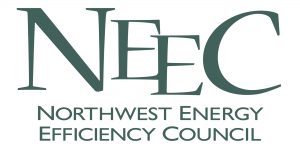The 2013 Washington Legislature is scheduled to end on Sunday April 28th. Don’t count on it. With agreements on the operating and capital budgets far from certain, the session is almost certain to be extended. Miracles do happen, but absent rapid agreement this week, it is likely that Gov. Jay Inslee will call a 30 day special session at the conclusion of the statutorily defined 90 session that is soon to end. Typically, the extended session involves negotiation between the Governor and legislative leaders while most rank and file legislators return home. When a deal is struck, House and Senate reconvene to take action.
NEEC has been tracking and involved in a number of bills this session. The following provides a status report.
HB 1466 – This bill reauthorizes the Capital Projects Review Board as well as a number of alternative procurement mechanisms for public construction such as design-build and GC/CM. The House version of this bill provided options for owners to use energy life cycle cost criteria in the selection process for design-build projects. The Senate version stripped that language and instead requested that CPARB study the issue of life cycle cost and report back at the end of the year. It is unclear at this point which version of this bill will prevail.
SB 5438 – This bill would have amended the conservation provisions of I-937 to allow for "carryover" of excess conservation achievements by a utility from one biennial period to another. A number of utilities championed this provision arguing that the current target setting and penalty features of the bill cause them to effectively stop their efficiency programs when a biennial target is reached. The proposed solution was to allow this "excess achievement" to count toward a future target – which according to proponents removed the disincentive of overachievement. This bill did not move through the House this session, but it is expected to re-surface in the 2014 session.
HB 2029 – This bill abolishes the public-private partnership, Innovate Washington, and transfers the economic development functions of that organization to the Department of Commerce. Innovate Washington is a one year old organization and includes as one of its flagship efforts the Northwest Building Energy Technology Hub (NBETH). NEEC has voiced concerns about this move to the bill sponsor, Rep. Jeff Morris but the bill appears to be headed to the full House this week.
Capital Budget – The Senate version of the capital budget contained no funds for the continuation of the Jobs Act which has provided for successful energy efficiency improvements in public buildings over the last three years. The House capital budget on the other hand has $41M of Jobs Act funding. It is unknown how the two budget versions will be reconciled, but it is likely that this may not occur until a special session is called.
South of the Columbia River, the Oregon Legislature is straddling the midway point of its 2013 session. NEEC is following a number of bills in the session.
HB 2801 – This bill sponsored by Rep. Jules Bailey has three distinct features. The definition of cost effectiveness is tweaked to provide for both a whole building level of analysis as well as language allowing the OPUC to authorize when that calculation can be performed over multiple time periods within the context of an owner’s staged investment decision-making. Unrelated features of the bill also include requirements for certifying individuals that can perform residential energy performance scores as well as a requirement for appraiser licensing which would now include the capacity to make value judgments based on a property’s improvements in energy efficiency. The bill has passed the House and is now in consideration in the Senate.
SB 254 – This bill comes from a work group chaired by Senator Beyer and Rep. Holvey. The Attorney General’s office (specifically Blake Underwood from the AG’s office) has been leading a process to Specifies conditions under which contracting agency may use alternative contracting method to award public improvement contract for construction manager/general contractor services.
SB 537 – This bill would set a stakeholder group on a proposed carbon tax in Oregon. The bill is in the Senate Finance and Revenue committee. At this point, it is unsure if the bill will have a hearing.
SB 488 – This bill would remove the 2015 sunset on the low carbon fuel standard program. The bill is still in committee.
SB 844 – This bill sponsored by Sen. Lee Beyer directs the OPUC to establish a voluntary greenhouse gas emission reduction program for the purpose of incentivizing public utilities to invest in projects that reduce greenhouse gas emissions and provide benefits to utility customers. This bill is just beginning the legislative process in senate committee.
